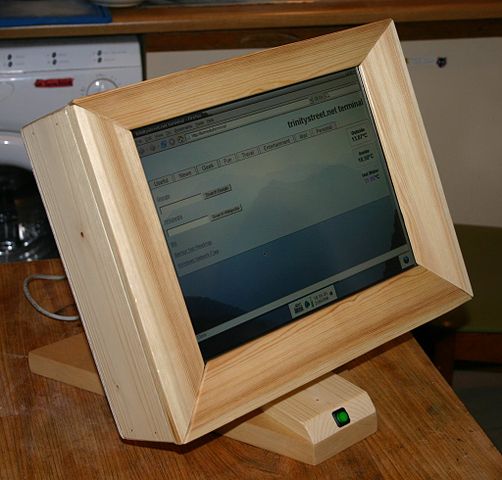

Photo by Barney Livingston from Brighton, UK
GNU/Linux is no underdog anymore. HP currently pre-installs GNU/Linux and it does not charge "Microsoft tax" [1]. As one who uses an HP laptop to write this, the feeling of saying it is pretty good, putting aside some of the negative sides of HP (no company is perfect). Almost any bit of hardware can run GNU/Linux [2], so excuses like technical difficulties (e.g. drivers) no longer pass muster and demand from the public is definitely growing (Google and its hardware partners sell many machines with GNU/Linux pre-installed). In this age of GNU/Linux with Steam and Android with Play, even gaming is hardly a valid excuse [3] (neither for game developers nor gamers). There are plenty of decent (user-friendly) desktop front ends, and even the notorious Unity is liked by some [4]. Some would go as far as saying that "Linux [became] too easy" [5,6] for the shrinking market which is desktops [7,8]. It is safe to say "shrinking" because even Intel, the company which cashed in on desktops, is feeling the pinch [9] as hardware becomes smaller and more efficient in the ours rooms and the back rooms also [10]. Tablets and smartphones, suffice to say, are an area dominated by Linux already. That is a growth area. ⬆
They do supply that other OS pre-installed but you can see the price difference between that and installing GNU/Linux.
Jeff Osier-Mixon is a community manager at Intel for The Yocto Project, an open source collaboration project that provides templates, tools and methods to help you create custom Linux-based systems for embedded products regardless of the hardware architecture. Basically: The Yocto Project allows development to happen without the worries of what hardware the code will run on.
Slightly off-topic from typical gaming related news, but I thought I would start a conversation since many devs and gamers I talk with often discuss this OS or that OS as “The Next Big Thing”™. The general consensus I get from the public is that Windows 8 got off to a rocky start given the changes they’ve made to the interface. From a gaming perspective Microsoft has only added incremental updates to DirectX 11 since the release of Windows 8.0. Microsoft today has released Windows 8.1 RTM and it comes with DX 11.2 (IMO nothing big, but some convenient updates). Despite public backlash against tiles and Windows apps, Microsoft decided to release the update via the Windows Store app (oh the irony). They also forgot to mention that you need a special update for Windows 8.0 in order to download 8.1. Not off to a good start. So I just finished the update and after waiting just a little over an whole hour for it to finish, I’m regretting it big time. My standard desktop account was replaced and I’m now logged in using my online Microsoft account. Seriously?
I just use the default Unity interface. It’s not perfect, but it doesn’t do anything egregiously bad like Windows does. I don’t like the launcher (I rely on Synapse instead), but I love the top bar with the unified messaging/audio/etc. The indicators on the sidebar are great, too.
It's hard to believe, looking at the modern computing world, but there is still more to life than Windows or Unix… and today, most of the alternatives run on vanilla x86 hardware and are free.
Tablets and smartphones are PCs! The real problem, for some companies, is that they have been producing what Wintel wanted and not what consumers wanted, small cheap computers. Naturally, if you’re trying to sell these people big expensive computers, they won’t be buying. The market for personal computers is thriving, according Statista. Look at shipments per annum (millions):
Decision is puzzling given Intel's potential to catch up in the tablet market
A new supercomputer being deployed this month in the U.S. is using solid-state drive storage as an alternative to DRAM and hard drives, which could help speed up internal data transfers.